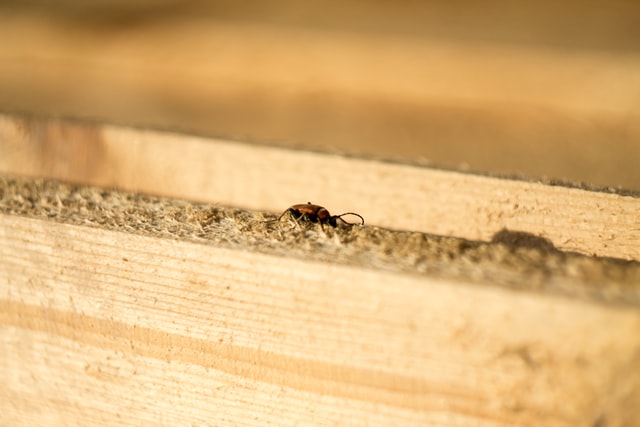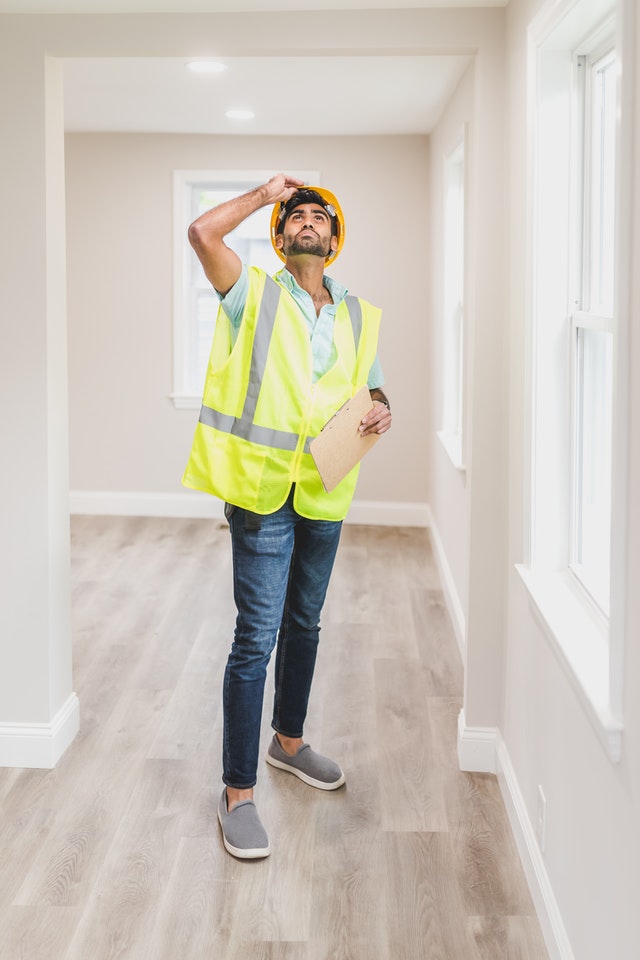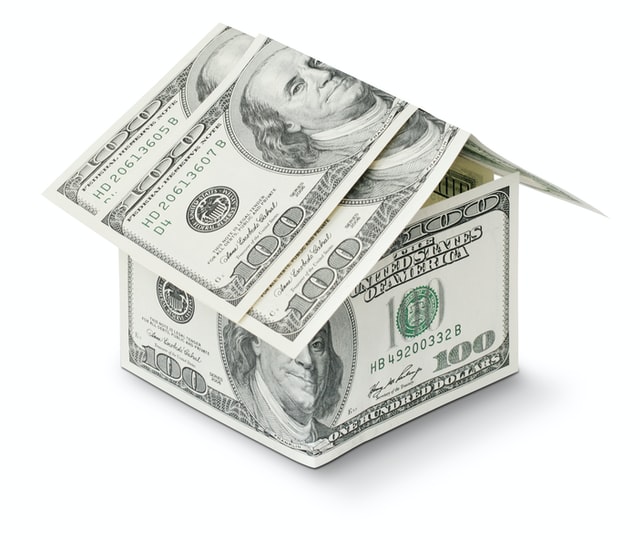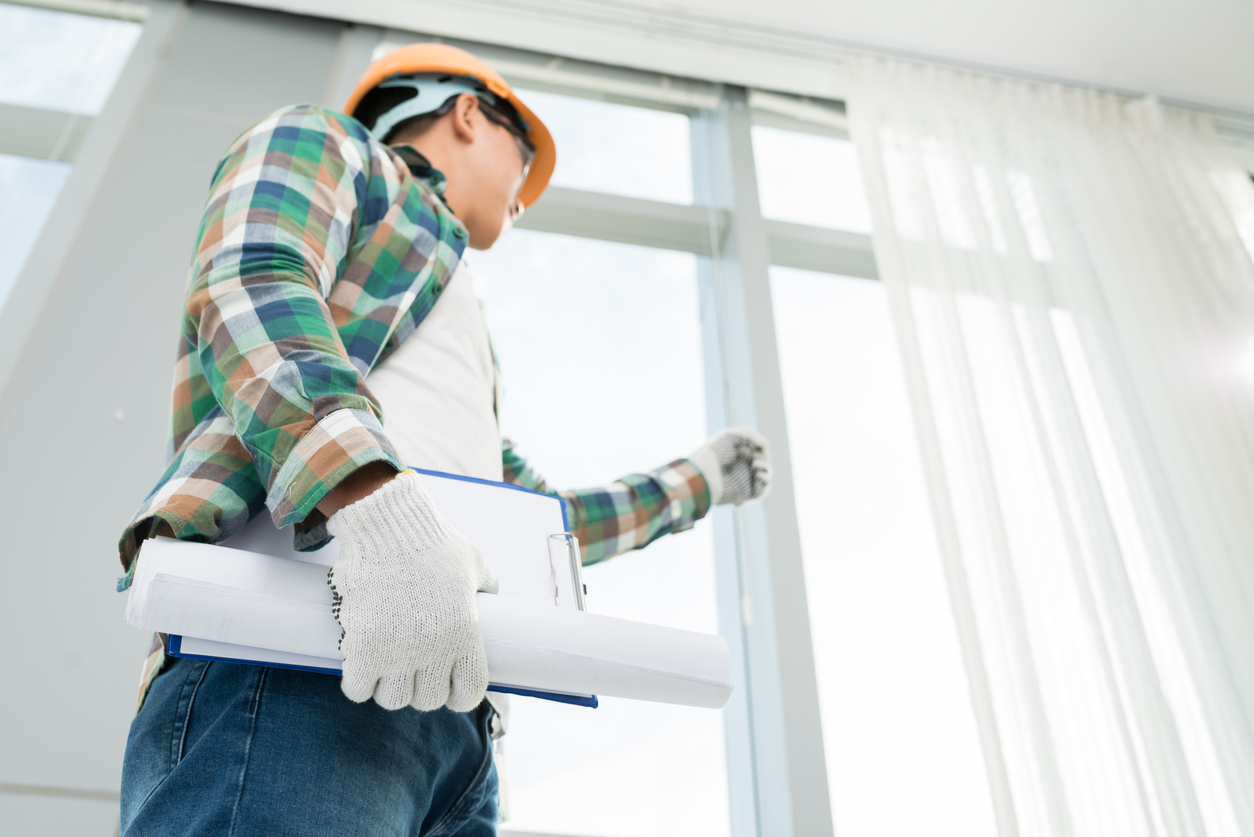Termites are a species of destructive, cellulose-eating insects that can wreak havoc on your home. These pesky pests can infiltrate your home in many ways, causing significant damage to the structural integrity of your property. Many homeowners worry about dealing with a termite infestation, especially if they plan to sell their home. It’s crucial to prevent termites or correct the issue as soon as possible. While termites can destroy wood and cause thousands of dollars in damage, they can also affect the overall value of a property. Read on to learn more about termite damage, how it affects home values, and what you can do.
Regions with the Most Termite Damage

Certain regions in the United States are more vulnerable to termites than others. States with the most prevalent termite damage include Florida, Georgia, and South Carolina. The state of Florida tends to have the highest concentration of termites, but several other Southern states also deal with termite damages frequently.
Termites cause damage to approximately 600,000 American homes per year. The cost to repair damage due to termites varies on the severity and how much your home is affected, but homeowners can pay thousands of dollars on home repairs in most cases. One Formosan termite species is estimated to cause $1 billion in property damage a year.
What Makes These Regions More Termite Vulnerable?
Termites love living in warm locations, which is why so many Southern states tend to have more termite damage. These insects also love humid, damp environments, so states like Florida, Louisiana, and Alabama tend to have more issues. Many arid, dry regions like the U.S. Southwest have fewer issues with termites. Alaska is the only state where termites cannot survive.
Are Some Styles of Houses More Susceptible to Termite Damage?
Dry, well-maintained homes are less vulnerable to termite damage. Homes with high humidity levels or damp basements are more prone to termite issues. Property with certain types of patios or terraces and those with slab-on-grade foundations are also more susceptible to termites and termite damage. Make sure that your basement or crawl space is dry and that your lawn is graded, so it directs water away from the home.
How to Detect Termites in Your Home

To keep termites from affecting your home value, it’s essential to know how to spot these pests before the damage gets out of control. Knowing what termite damage looks like and the signs of an infestation are the first steps toward preventing the termite damage from getting worse over time.
What Does Termite Damage Look Like?
Here are some things to look for if you suspect that you have termite damage:
- Rotted wood around window and door frames, or windows and doors that get stuck when opening and closing them
- Squeaky, uneven floors
- Piles of sawdust around baseboards or in the basement of your home
- Small, brown-colored dots, which may be termite droppings
- Shed wings of termites or piles of wings on the floor and around window and door frames
- Bubbling paint or peeling wallpaper (this may indicate that termites are in the walls)
Termites love to eat wood, and they can affect a variety of areas of your home, including:
- Wood window and door frames
- The foundation, basement, or crawlspace
- Floor beams
- Baseboards and crown molding
- Drywall
How to Protect Your Home from Termites
Fortunately, there are some things you can do to protect your home from termites:
- Make sure that your basement or crawl space is dry and that it has low levels of humidity
- Check your windows and doors and repair torn screens, and fix leaks
- Keep firewood far away from your home and store it away from the ground and out of the basement
- Ensure that gutters and downspouts are directing water away from the foundation
- Consider hiring a pest control professional to inspect and treat your home annually
- Know the signs of termites so you can act as soon as possible
How Do Termites Affect Home Value?
 Termites can negatively affect your home value, and many homeowners shell out approximately $3,000 to make repairs on average. Some evidence suggests that termites can lower a home’s value by as much as twenty percent. If termites are found during a home inspection, it can reduce the value of your home significantly or may even cause buyers to second-guess making an offer. You’ll have to pay an additional fee in some states if evidence of termites or termite damage is found.
Termites can negatively affect your home value, and many homeowners shell out approximately $3,000 to make repairs on average. Some evidence suggests that termites can lower a home’s value by as much as twenty percent. If termites are found during a home inspection, it can reduce the value of your home significantly or may even cause buyers to second-guess making an offer. You’ll have to pay an additional fee in some states if evidence of termites or termite damage is found.
How to Increase a Home’s Value After Termite Damage
Here are some ways to increase your home value after dealing with termite damage:
- Start with a thorough pest control treatment to kill all remaining termites
- Make all repairs and replace any areas where there is damaged wood
- Get a clean and clear termite inspection report before you sell your home
- Continue to get termite treatment to prevent future infestations
When You Should Get a Termite Inspection and Why It’s Important

There are no laws mandating that you must get a termite inspection when buying or selling a home. However, some lenders require a termite clearance letter in order to close a home mortgage. This letter indicates that a qualified termite inspector has come to your home and verified that there are currently no signs of termites or termite damage. If you’re planning to sell your home, it’s a good idea to get this termite inspection done as soon as possible before you list the property. If any termite damage is present, you may want to make repairs before listing or be prepared to make negotiations with the buyer later after the home inspection is complete.
What do Inspectors Look For?
During the termite inspection, the inspector will look at your home’s exterior, interior, and foundation to ensure that it’s in good condition. They’ll also look for signs of a possible infestation, including mud tubes, droppings, broken termite wings, or signs of rotted or damaged wood. Ensure the inspector has clear, safe access to all areas of your home, including the basement or crawl space, attic, garage, and outbuildings. Inspectors will give special attention to bathrooms and the kitchen, where termites may use plumbing to get inside. Your inspector will thoroughly examine baseboards, walls, windows, cabinets, and closets.
What to Do When an Inspection Shows Termite Damage
If the inspection shows termite damage, you’ll want to assess the severity and get estimates to make repairs. If the damage is minor, you could wait to see if the buyer would be willing to negotiate the price of your home so they can pay for the repairs out of pocket after closing. Remember that extensive damage may cause potential buyers to back out of a deal, so it’s always good to consult with a professional termite inspection company to help you determine what should be fixed and what can be left alone.
Termite Damage When Buying or Selling Your Home
 Here are some tips to help you deal with termite damage, whether you’re buying or selling a home.
Here are some tips to help you deal with termite damage, whether you’re buying or selling a home.Buying a House with Termite Damage
Pros and Cons of Buying a House with Termite Damage
Severe termite damage can be costly to repair, but it could also save you thousands of dollars at the bargaining table. Use existing damage to your advantage and ask the seller to lower their asking price based on repairs you may need to make in the future. Of course, the downside to buying a house with termite damage is that existing termites may still live there. Ensure that you get a thorough termite inspection to confirm that the pests have been fully eradicated. You can always ask the seller for a better deal if you’re good at negotiating. If you’re already under contract, you can use the proof of termite damage to get a better price on the home.
Things to Consider Before Buying
Keep the following in mind before you purchase a home with termite damage.
Know where the damage is
If you want to know whether or not the home is in good condition, you’ll need to know exactly where the damage is located. If it’s in the foundation or attic, you may want to take a closer look before making an offer. Windowsills and door frames can be replaced more easily and at a much lower cost than the entire foundation.
Are the infestation and the causes fixed?
When a home has signs of prior termite damage and infestation, it’s crucial to confirm that the issue is now corrected. Ask the seller to provide you with receipts showing that the repairs have been done and proper termite treatment has been performed. A current contract with a termite or pest control company can also show that the homeowner is serious about treating the issue and keeping it treated so that termites don’t return.
Negotiate the price and the costs of inspection
Buying a home with termite damage could put the odds in your favor when negotiating while making an offer. Ask the seller to lower their asking price if there’s still damage in need of repair. You may also be able to ask the seller to pay for a final termite inspection and/or treatment before you close on the home.
Consider all extra costs this might cause
Of course, you should also keep in mind that there will be costs in the future if you buy a home with termite damage. You’ll need to keep up with regularly scheduled inspections and treatments to ensure that you don’t have more issues with termites moving forward.
Selling a house with termite damage
What to consider when selling a house with termite damage
Keep the following in mind if you’re selling a home with termite damage:
Consider Termite inspection
Get a professional termite inspection done and ask for a certificate showing that the home is now termite-free. Some states and specific lenders require this before anyone can sell the home.
Be honest about the home’s condition
Don’t try to hide or lie about termite damage. Be open and honest about the issue and reassure the buyer that you’re taking or have already taken steps to remedy the problem.
Be open to negotiating the price
Remember that most buyers will ask for a lower price if there’s evidence of termite damage, so be prepared and open to negotiations when you’re preparing to go under contract.
Take care of the repairs before listing it
It’s always best to fix any damage before listing your home on the market. The sooner you can make the repairs, the easier it will be to sell the home and get a quick closing.
Does Home Insurance Cover Termite Damage?

Termites are considered a home maintenance issue, so in most cases, your homeowner’s insurance won’t cover any damage due to termites. While it might cover other problems with pests, such as a bear breaking down your door or a trapped wild animal destroying your garage, it won’t cover termite problems. On the other hand, if termites chew through some electrical wire and cause a fire, home insurance should cover your property. In most instances, preventing pests like termites is part of regular upkeep, which is part of your responsibility as a homeowner.
Termites are a prevalent pest, but you can keep them from infesting your home with the proper preventative measures. Keep these tips in mind to help you avoid termites and make wise decisions if you’re buying a new home. You can also find out more about different termites in different states. Remember that you can correct most termite damage and eradicate the termites with the proper treatment. Scheduling regular termite inspections and knowing how to spot termite damage as soon as possible are the keys to keeping your home clean, structurally sound, and termite-free.




